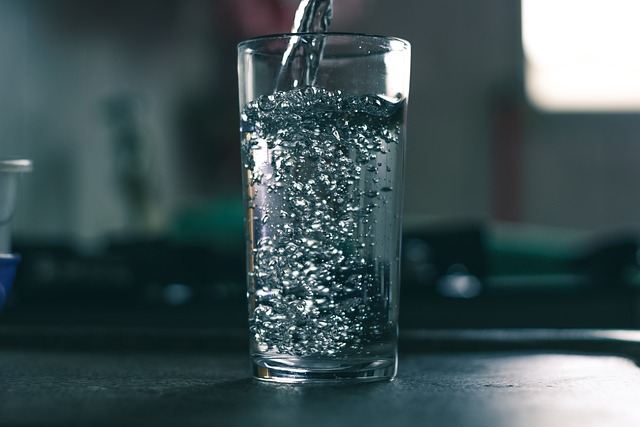
We all want clean water, but not every water filter system is as eco-friendly as we’d probably think. So, in this article, we’re going to tell you all about the most eco-friendly types of water filters so you can enjoy clean water without the burden of a larger carbon footprint. Let’s take a look at the options, but first, let’s look at what makes a water filter eco-friendly.
What Makes a Water Filter Eco-friendly?
When a water filter is considered eco-friendly, it usually means that it lasts longer than standard water filters, utilizes water more efficiently, and wastes fewer materials. Just having a water filter means less waste, thanks to a reduction in plastic bottles. There are some options that are almost 100% eco-friendly, and we’re going to explore them all. So, let’s take a look at the eco-friendly options.
The Most Eco-friendly Types of Water Filters
The good news is there are many different types of eco-friendly water filters. We’re going to take a look at nine eco-friendly water filter options to get you started on your green journey.
Reverse Osmosis
A RO water filter system is among the most popular options when it comes to filtration systems. RO has one of the highest effectiveness rates when it comes to reducing harmful contaminants that exist in your water. Thanks to the four stages of a sediment filter, carbon pre-filter, semipermeable membrane, and carbon post-filter, your water will be extremely clean. These units feature less plastic and have safe-to-dispose filters. Only thing is, they produce some waste water. To solve this, you need a RO system with a pressure pump.
A RO can be installed under the sink and have a separate water outlet which allows you to enjoy clean water with ease. The cost to install a reverse osmosis system can range between $150 and $400 on average.
Activated Carbon Filters
An active carbon filter is a great option for removing chemicals from your water while staying relatively green. This method uses activated carbon particles to remove things like pesticides, chlorine, etc., and they’re effective for removing plenty of contaminants without breaking the bank.
UV Filters
When it comes to UV filters, we’re using ultraviolet light to kill viruses, bacteria, and various other microscopic organisms. These are a more costly endeavor, but they’re extremely effective.
Rainwater Harvesting
A proper rainwater harvesting system is great for reducing water pollution. These systems collect rainwater, store it, and then, with a proper system in place, the water gets purified.
Sediment Filters
A sediment filter will use a fine mesh to remove sediment, dirt, etc., from the water. They are extremely affordable and relatively effective, but they work best when combined with a proper water filtration system.
Whole House Water Filtering Systems
In the short term, this won’t be a cheap option. However, over time having a whole-house water filtering system is facilitated by a combination of activated carbon filters, sediment filters, and other filtration means to get all the water in your home to an acceptable level. These require professionals to install, which can cost up to $100 per hour.
Water Filter Pitchers
A water filter pitcher is a jug that you fill with water. The filter cartridges sits inside the jug and purified the water before you pour it out. These are inexpensive and among the most popular water filters available.
Ceramic Filters
A ceramic filter is a cost-effective solution for water filtration in your home. This type of filter has pores that are as small as .5 microns which is able to catch the debris as the water passes through. They reduce most bacteria, turbidity, and sediment.
What Are The Benefits of Eco-friendly Water Filters?
There are numerous benefits to having an eco-friendly water filter in your home. Let’s take a look at the best reasons why you need one today!
- Better for the environment.
- Reduce plastic waste.
- Great for reducing energy consumption.
- Saves you money.
- Reduced water waste.
What Are The Downsides of Eco-friendly Water Filters?
While eco-friendly water filters are great, they’re not perfect. Here are some of the downsides to these water filters:
- Some of these methods aren’t as effective as more expensive ones.
- Some of these water filtration methods require more time than others.
- A whole-house water filtering system is great but expensive.
FAQ
While we’ve given you a lot of information, you’ve likely still got a few questions. Here are the most frequently asked questions surrounding eco-friendly water filters:
Are eco-friendly water filters really beneficial for the environment?
Yes. They’re beneficial because they contain less plastic in order to produce them, and they’re less reliant on harmful fossil fuels and chemicals. As a result, the carbon footprint is decreased, as well as the byproducts of making these filters.
What’s the most environmentally friendly option?
Ceramic filters are by far the best possible option if you’re looking to truly be eco-friendly. They’re able to be washed and reused multiple times, don’t have carbon cores, and remove most contaminants from the water.
Conclusion
With all these options, you’ve got a great deal of thinking to do about how you can have clean water while being eco-friendly. A reverse osmosis water filter is likely the most effective choice of the bunch, but that isn’t to discount the numerous other options. Do your research, see what each cost, and get a water filter that works for you. The point is to have clean water. With any of these options, that’s possible.



